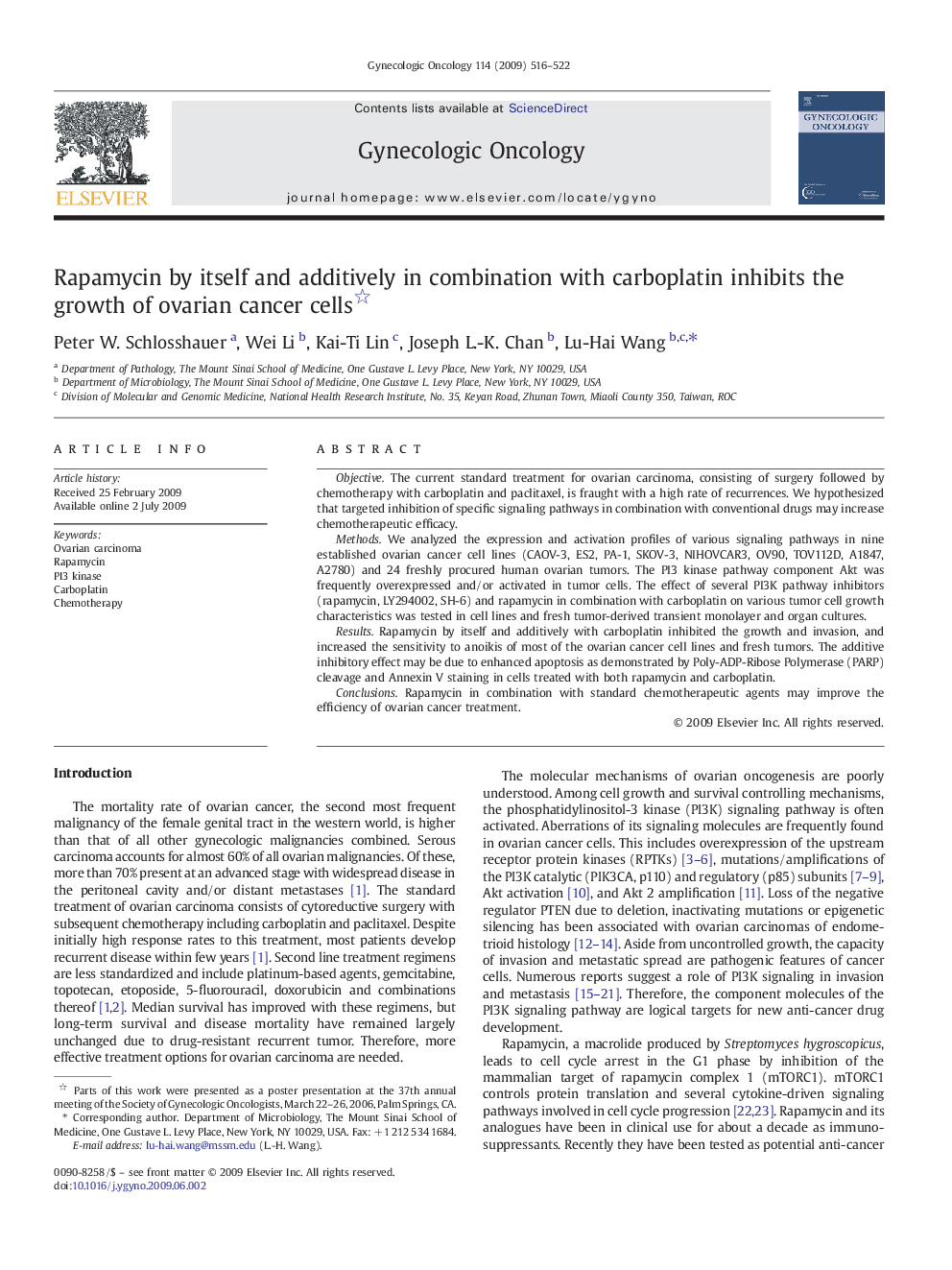| Article ID | Journal | Published Year | Pages | File Type |
|---|---|---|---|---|
| 3945928 | Gynecologic Oncology | 2009 | 7 Pages |
ObjectiveThe current standard treatment for ovarian carcinoma, consisting of surgery followed by chemotherapy with carboplatin and paclitaxel, is fraught with a high rate of recurrences. We hypothesized that targeted inhibition of specific signaling pathways in combination with conventional drugs may increase chemotherapeutic efficacy.MethodsWe analyzed the expression and activation profiles of various signaling pathways in nine established ovarian cancer cell lines (CAOV-3, ES2, PA-1, SKOV-3, NIHOVCAR3, OV90, TOV112D, A1847, A2780) and 24 freshly procured human ovarian tumors. The PI3 kinase pathway component Akt was frequently overexpressed and/or activated in tumor cells. The effect of several PI3K pathway inhibitors (rapamycin, LY294002, SH-6) and rapamycin in combination with carboplatin on various tumor cell growth characteristics was tested in cell lines and fresh tumor-derived transient monolayer and organ cultures.ResultsRapamycin by itself and additively with carboplatin inhibited the growth and invasion, and increased the sensitivity to anoikis of most of the ovarian cancer cell lines and fresh tumors. The additive inhibitory effect may be due to enhanced apoptosis as demonstrated by Poly-ADP-Ribose Polymerase (PARP) cleavage and Annexin V staining in cells treated with both rapamycin and carboplatin.ConclusionsRapamycin in combination with standard chemotherapeutic agents may improve the efficiency of ovarian cancer treatment.
